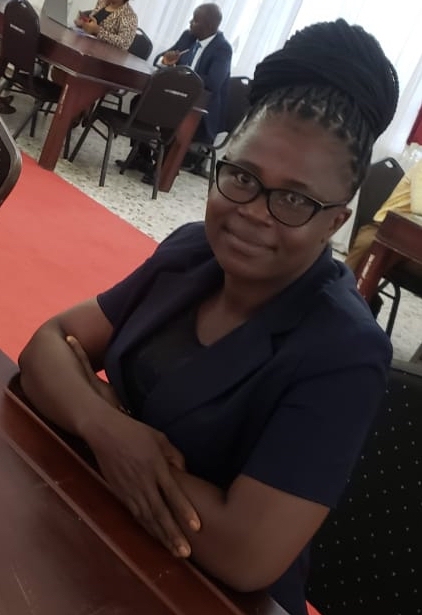Jacqueline’s story with female genital mutilation/cutting (FGM/C) is one of both survival and advocacy. She works tirelessly to prevent other families from pressuring their daughters to undergo FGM/C, and the origins of her work are from her own insight after undergoing the practice herself.
“Until age 7 on that day, I had two lovely childhood girl friends… We were meant to be mutilated on the same day. But me being the granddaughter of the cutter, they went through the exercise first… It ended up causing their death, because the bleeding from the cut began to spread.”
Jacquline found it difficult to forgive her grandmother for her participation in carrying on the harmful practice. This loss of her friends and the disagreements with her grandmother allowed her to realize how dangerous FGM/C is.
“Going through the practice of FGM/C [female genital mutilation] myself at a very early age and also seeing other girls go through it too, I know that pain that the cut causes. That is why I feel the practice must end with me, and a new generation must begin with me, so no one else feels that pain.”
“I knew that it was my mission, to carry on this message to a wider audience. In spirit, in my community, and in my country. And to also save my girls from going through the same practice. I have three beautiful girls and none of them are taking the cut.”
Jacqueline is the founder of the Covenant Foundation for Girls (COFGIRLS), The organization focuses on providing educational information about the dangers of FGM/C to young girls, and also goes to rural areas to create dialogues surrounding ending FGM/C.
In 2010, Jacqueline and her team received a grant from Equality Now to support their educational efforts to visit villages to educate young girls and their parents about FGM/C.
“So we were a team of seven persons… but four of my other teammates did not go through the practice, so they didn't understand the [negative] response we would get when bringing up FGM/C in rural villages.”
Taboos associated with speaking about FGM/C can make educational efforts difficult and conversations to end the practice were met with hostility; Jacqueline remembered in one village, choosing to stick up for her teammates, and taking responsibility for bringing up the topic of FGM/C in that setting. She pointed to the combination of a lack of education and the establishment of the practice within the rural communities that made this advocacy work so challenging.
Jacqueline does not view FGM/C as “a cultural heritage that needs to be upheld.” Rather, she emphasizes a “need to have a national dialogue, to bring together stakeholders and chiefs” to work towards ending it.
Years later, her activism led her to attend the 2023 Women Deliver Conference held in Kigali, Rwanda. At the conference, Jacqueline signed on as a founding member of the newly emerged End FGM/C Network Africa, an organization aimed at uniting voices of advocacy in the hope of influencing those in power to support the end of FGM/C in Africa.
The future is bright for Jacqueline’s advocacy work. When asked about where to go from here, she mentioned the vital importance of educating men on the harm that FGM/C causes, and how their support of the practice in communities she works with has led to irreversible trauma for the women in their families and communities.
“Everyone, especially parents of survivors, need to learn the truth about female genital cutting and help us to save our girls' futures. FGM/C is cruel, deadly, and an abuse of human rights.”

